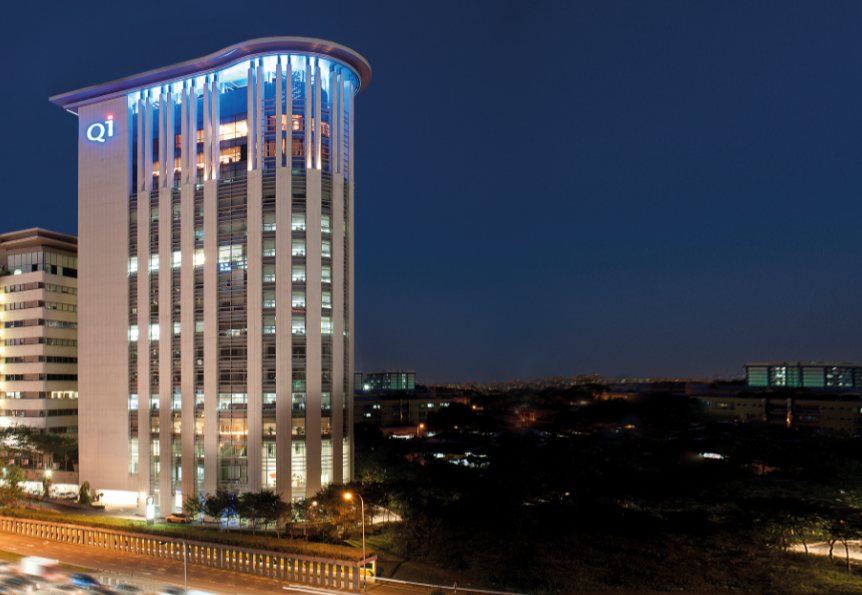Who is the owner of QI Group?
Under the stewardship of founders Vijay Eswaran and Joseph Bismark, the QI Group has grown from a startup into a global enterprise. The founders’ commitment to principled leadership and innovative business tactics has driven success across QI Group’s diverse
portfolio since 1998.
It continues to guide the privately held organisation’s direction — Eswaran as executive chairman and Bismark as deputy chairman — working alongside their board of directors to shape strategic decisions.
Founded during the tumultuous Asian financial crisis of 1998, the Hong Kong-registered conglomerate has expanded into a multinational powerhouse operating in over 30 countries. Its remarkable workforce represents approximately 50 nationalities. This global footprint spans diverse sectors, including education, travel and leisure, luxury goods, and wellness.
At QI Group, leadership is not confined to titles or positions—it is a quality that can emerge at all levels of the organisation. Its democratic perspective on leadership enables the company to tap into its workforce’s varied talents, experiences, and viewpoints.
The resulting environment encourages experimentation and innovation while giving employees ownership over their career development and contributions to company objectives. This egalitarian approach transforms traditional hierarchies into collaborative networks where ideas flow freely, and everyone participates in shaping the organisation’s future.
What is the vision of the QI Group?
QI Group’s core vision centres on building a sustainable, inclusive global business ecosystem grounded in four foundational values: integrity, service, sustainability, and leadership. These principles aren’t corporate buzzwords but lived commitments that permeate every facet of operations.
Integrity manifests as “truth above all and truth in all”; throughout QI Group’s dealings. Beyond regulatory compliance, this represents a fundamental commitment to ethical practices that have earned the trust of customers, employees, and partners alike.
The Group embraces its role as a caretaker for the next generation through environmental initiatives that go beyond compliance. The organisation demonstrates practical ecological stewardship, from resource conservation to ecosystem restoration programs, while encouraging others to adopt similar practices.
Environmental responsibility is at the heart of QI Group’s business model. The company puts this commitment into practice through concrete actions, —from water conservation projects to reforestation initiatives that help restore damaged habitats. These efforts display a genuine dedication to protecting ecological systems essential for our shared future.
Employee engagement and leading through service: 120,000 hours of global community impact
When 2,000 employees unite in purpose, the impact reverberates across continents. In offices and communities worldwide, QI Group employees have transformed a simple idea into a powerful force for social change.
Through the Employee Community Impact program, they’ve contributed more than 120,000 hours of service since 2013, turning corporate values into tangible community benefits.
This impressive volunteer commitment springs from RYTHM — Raise Yourself To Help Mankind — the philosophical foundation that guides the organization. The concept, derived from Mahatma Gandhi’s teachings, encourages personal development as a prerequisite for helping others.
QI Group implemented a policy encouraging employees to allocate 12 hours annually to volunteer work. The benefits flow both ways: Communities receive support while employees develop stronger connections to their work and each other.
Eswaran’s approach to leadership emphasizes service above authority. “I believe that leadership is not about telling people what to do. A true leader is one who knows how to serve,” he stated.
“Of course, service is not the same as servitude. It’s not about sacrificing our own needs and values for the sake of others. It’s about setting aside our own self-serving behaviours and priorities in favour of the greater good.
“It’s about putting the needs of others ahead of our own without sacrificing our own sense of purpose and identity,” Eswaran explained in a LinkedIn post. “I believe that the true test of success is not the size of our profits or the number of awards we’ve won, but how well we have served others.”
Speaking on principles that guide effective leadership, Eswaran noted, “Arrogance is a fundamental failure of many a leader. When mired in ego, a leader loses this anchor and is easily swayed by the storms of self grandeur. It is humility that keeps the person chained to the bedrock of reality.”
This grounding in reality through humility creates the foundation for another essential quality: patience, which stands as a cornerstone of his effective leadership.
“Patience is not just a virtue but a practice that requires daily application. It is a state of mind that emanates an inner sense of tranquility, calmness, and serenity that permeates one’s surroundings. Such a leader becomes an oasis amidst chaos so create an environment where your employees feel like they are valuable stakeholders,” he continues.
“Find the right people and give them ownership of what they do. You need a Sherpa to find your way to the top of a mountain. The best thing you can do for your business is to turn your employees into Sherpas.”


